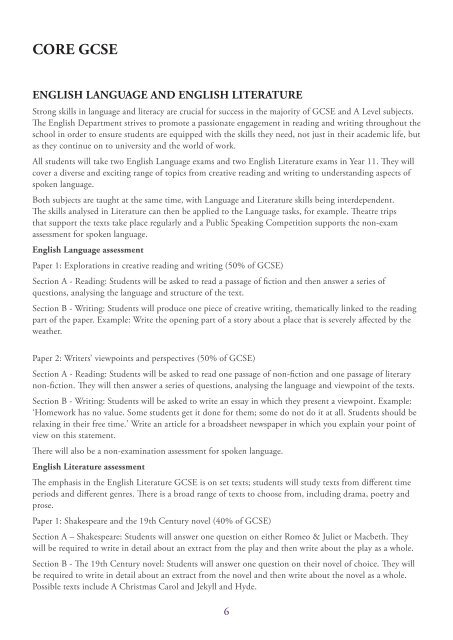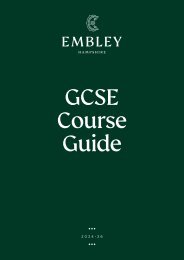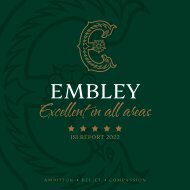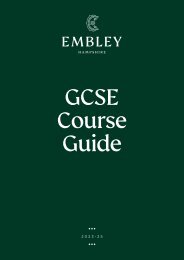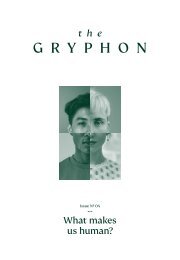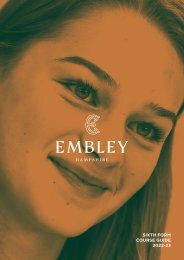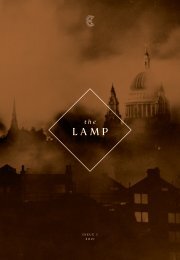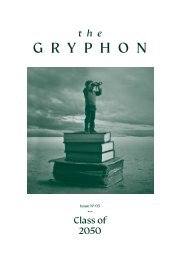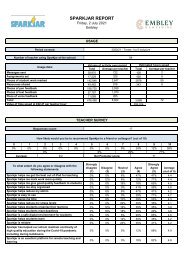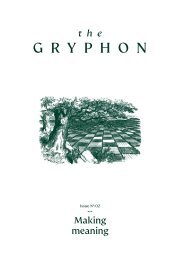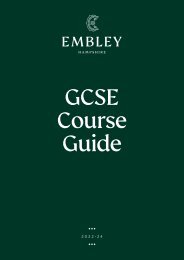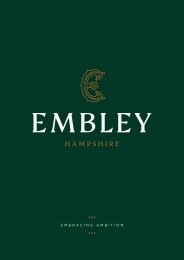GCSE Courses Guide 2019-21
Create successful ePaper yourself
Turn your PDF publications into a flip-book with our unique Google optimized e-Paper software.
CORE <strong>GCSE</strong><br />
ENGLISH LANGUAGE AND ENGLISH LITERATURE<br />
Strong skills in language and literacy are crucial for success in the majority of <strong>GCSE</strong> and A Level subjects.<br />
The English Department strives to promote a passionate engagement in reading and writing throughout the<br />
school in order to ensure students are equipped with the skills they need, not just in their academic life, but<br />
as they continue on to university and the world of work.<br />
All students will take two English Language exams and two English Literature exams in Year 11. They will<br />
cover a diverse and exciting range of topics from creative reading and writing to understanding aspects of<br />
spoken language.<br />
Both subjects are taught at the same time, with Language and Literature skills being interdependent.<br />
The skills analysed in Literature can then be applied to the Language tasks, for example. Theatre trips<br />
that support the texts take place regularly and a Public Speaking Competition supports the non-exam<br />
assessment for spoken language.<br />
English Language assessment<br />
Paper 1: Explorations in creative reading and writing (50% of <strong>GCSE</strong>)<br />
Section A - Reading: Students will be asked to read a passage of fiction and then answer a series of<br />
questions, analysing the language and structure of the text.<br />
Section B - Writing: Students will produce one piece of creative writing, thematically linked to the reading<br />
part of the paper. Example: Write the opening part of a story about a place that is severely affected by the<br />
weather.<br />
Paper 2: Writers’ viewpoints and perspectives (50% of <strong>GCSE</strong>)<br />
Section A - Reading: Students will be asked to read one passage of non-fiction and one passage of literary<br />
non-fiction. They will then answer a series of questions, analysing the language and viewpoint of the texts.<br />
Section B - Writing: Students will be asked to write an essay in which they present a viewpoint. Example:<br />
‘Homework has no value. Some students get it done for them; some do not do it at all. Students should be<br />
relaxing in their free time.’ Write an article for a broadsheet newspaper in which you explain your point of<br />
view on this statement.<br />
There will also be a non-examination assessment for spoken language.<br />
English Literature assessment<br />
The emphasis in the English Literature <strong>GCSE</strong> is on set texts; students will study texts from different time<br />
periods and different genres. There is a broad range of texts to choose from, including drama, poetry and<br />
prose.<br />
Paper 1: Shakespeare and the 19th Century novel (40% of <strong>GCSE</strong>)<br />
Section A – Shakespeare: Students will answer one question on either Romeo & Juliet or Macbeth. They<br />
will be required to write in detail about an extract from the play and then write about the play as a whole.<br />
Section B - The 19th Century novel: Students will answer one question on their novel of choice. They will<br />
be required to write in detail about an extract from the novel and then write about the novel as a whole.<br />
Possible texts include A Christmas Carol and Jekyll and Hyde.<br />
6


